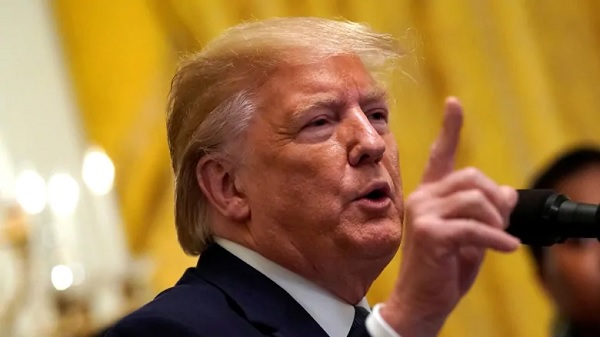
Attorney Scott Pilutik wrestles with the news of the day, from a lawyerly perspective…
Yesterday I discussed the first part of the SDNY opinion by Judge Marrero, where he dismissed Trump’s lawsuit seeking to bar the NY Attorney General from subpoenaing his tax returns. The court’s ruling was based on the doctrine of abstention — i.e., the federal court will decline jurisdiction if the underlying matter is already in state court and state court is the right place for that matter to be.
The court took acute umbrage with Trump’s argument that while President, he “cannot be investigated, indicted, or otherwise subjected to criminal process,” relying on the same Office of Legal Counsel (OLC) memos that complicated and burdened the Mueller Report, which opined that a sitting president was immune to indictment because the ability to do so would adversely implicate the separation of powers by interfering with the president’s constitutionality-mandated functions.
To this proposition, the court took issue in a passage that will undoubtedly get a lot of airplay.
The Court is not persuaded that it should accord the weight and legal force the President ascribes to the DOJ Memos, or accept as controlling the far-reaching proposition for which they are cited in the context of the controversy at hand. As a point of departure, the Court notes that many statements of the principle that “a sitting President cannot be indicted or criminally prosecuted” typically cite to the DOJ Memos as sole authority for that proposition. Accordingly, the theory has gained a certain degree of axiomatic acceptance, and the DOJ Memos which propagate it have assumed substantial legal force as if their conclusion were inscribed on constitutional tablets so-etched by the Supreme Court. The Court considers such popular currency for the categorical concept and its legal support as not warranted.
To this I say: Whoa. The OLC memos advising against the indictment of a sitting president have been treated as gospel for decades, but as the court rightly points out, not actually tested in court. And before yesterday, haven’t been openly mocked by a judge. It’s also true that there’s the OLC memos only address federal criminal exposure, but here it’s New York State conducting an investigation. Some of the rationales underpinning the OLC memos simply aren’t present in the state context.
And the OLC memos (three total) contain conflicts as to scope — the Moss memo is far narrower and entertains the possibility of grand jury proceedings against a sitting president. The real point behind Marrero’s stroll through history in this section was to underscore the OLC memos’ “scant” utility as persuasive authority — their analysis derives not from facts but from “unqualified abstract doctrine asserting a generalized principle.”
The court suggests a “practical alternative” over a “regime of absolute presidential immunity,” one that considers the actual facts against the parade of horribles imagined in the OLC memos. Whereas some criminal investigations and procedures could incapacitate the president and thus the presidency (giving rise to the separation of powers fear), the court suggests that an investigation into the president’s taxes, traffic offenses, or a DUI wouldn’t trigger the same concerns as if the president were charged with a crime in which imprisonment was a potential outcome.
Judge Marrero, in other words, isn’t buying the presumption at the heart of the OLC memos — that any criminal process would categorically hamper the president from fulfilling his constitutional duties. Some might, some might not.
It’s perhaps entirely beside the point, legally speaking, but this president evidently has time enough on his hands to watch 12 hours of Fox News a day and mock celebrities on Twitter, which reality would seem to undermine the OLC memos’ rationales about criminal process being a burden on the presidency. The OLC memos, of course, were all drafted during a time when presidents actually president-ed.
The court also notes that President Bill Clinton’s “time and energy” were surely sapped during the Paula Jones civil lawsuit, probably moreso than most criminal procedures. Recall, the Supreme Court rejected Clinton’s request for immunity in the civil context. If nearly all the OLC rationales for presidential immunity are also implicated in the civil context, and the Supreme Court has already found — unanimously — that a civil suit against the president can proceed, what good are those rationales?
And what about the myriad competing rationales in tension with categorically absolute immunity? The court expresses concern that “full and fair justice” could suffer in some scenarios where the president’s criminality extended to such interests as national security, where co-conspirators are implicated, and where there is no time (at the end of a term) to impeach. The OLC memos are academic exercises failing to account for factual scenarios that not only may arise, but that have recently, in all likelihood, arisen.
If you have strong negative opinions about Donald Trump, the answer to all this might seem obvious, but create a hypothetical with a president you like and consider that while the president is indeed not a monarch and is subject to the laws, some degree of immunity is necessary, lest the presidency be vulnerable to cynical, frivolous legal attacks. But given recent history, in which the power of the presidency has only expanded far beyond the constitutional framers’ design, it’s hard to see the ratchet turning the other way.
But our jurisprudence has consistently discarded the idea of absolute immunity. Even Richard Nixon, the court here points out, conceded that he was “under a legal duty to produce relevant, non-privileged evidence when called upon to do so.” Trump argued that forcing his accountants to comply with a subpoena “upends our constitutional design,” but Judge Marrero objects — to the precise contrary, his decision upholds it.






